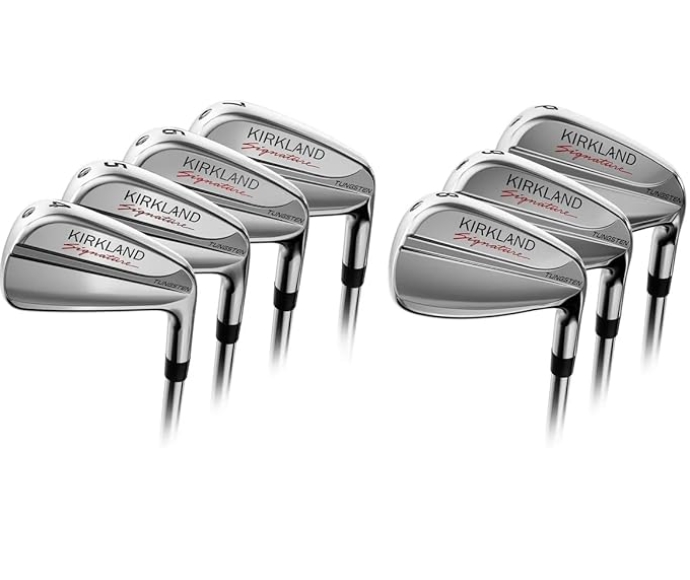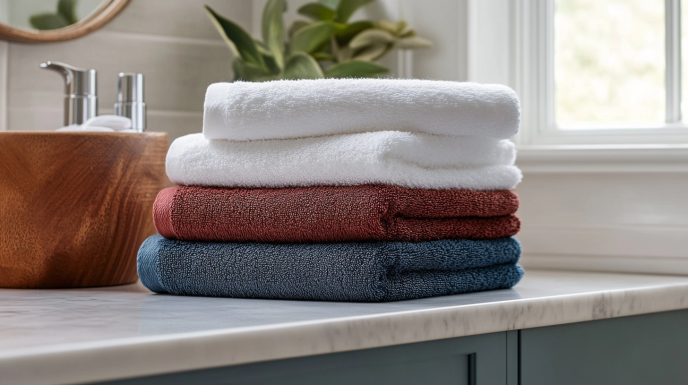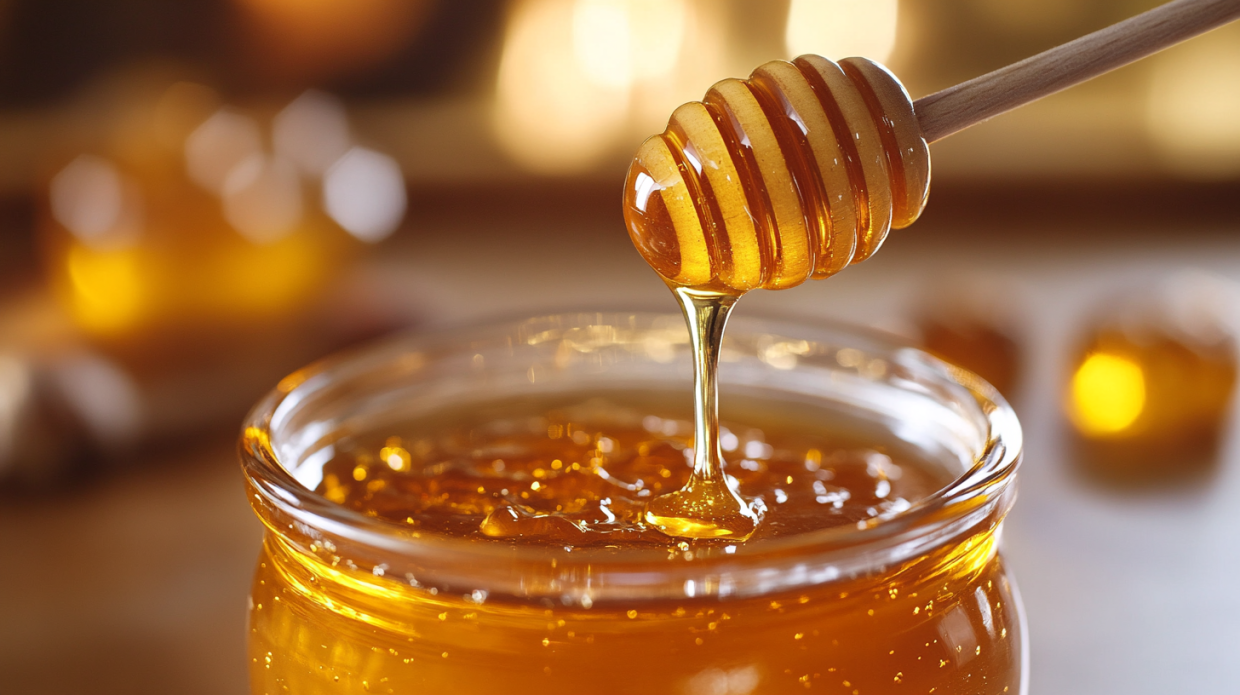
Kirkland Signature 7-Piece Regular Flex Right-Handed Iron Set
- PREMIUM DESIGN: Kirkland Signature golf irons feature advanced tungsten weighting technology for enhanced performance and control
- IRON SET: Complete 7-piece iron set designed for improved accuracy and consistency across all clubs
- PERFORMANCE: Precision-engineered club faces deliver optimal ball speed and spin control for better shot-making
How warehouse club value is changing the game for golfers at every level
Golf is a game of precision, patience, and unfortunately for many enthusiasts, price. For decades, premium golf equipment has remained firmly out of reach for the average weekend warrior, with top-tier iron sets easily commanding four-figure price tags. But in recent years, a curious challenger has entered the conversation: Kirkland Signature. The same brand that sells your bulk paper towels and rotisserie chickens has been making waves in the golf world, leading many to ask: Could Costco’s house brand be the ultimate game-changer in golf equipment affordability?
As someone who’s spent countless hours analyzing golf equipment and even more hours shanking shots into the woods, I’ve watched with fascination as Kirkland Signature has expanded its golf offerings. Their putters and golf balls have already developed cult followings, but what about Kirkland Signature irons? Do they even exist? If so, are they any good? And most importantly—are they worth your hard-earned money?
Let’s dive into everything you need to know about Kirkland Signature irons, separating fact from fiction and helping you decide if these warehouse club clubs deserve a spot in your bag.
The Kirkland Signature Golf Phenomenon: Setting the Stage
Before we get into the specifics of Kirkland irons, it’s worth understanding how we got here. Costco’s Kirkland Signature brand has built its reputation on offering products that match or exceed the quality of name brands at significantly lower prices. This formula has worked wonders across countless product categories, from food to clothing to household items.
In 2016, Costco sent shockwaves through the golf industry with the release of their Kirkland Signature golf balls. Priced at just $29.99 for two dozen (when premium balls were selling for $45+ per dozen), these balls quickly gained a reputation for performing nearly as well as tour-level balls costing twice as much. The initial release sold out almost instantly, creating a secondary market where the balls were reselling for multiples of their retail price.
This success was followed by the Kirkland Signature putter—a weighted, milled design reminiscent of Scotty Cameron’s popular models but at less than a third of the price. Again, golfers rushed to get their hands on them, and again, they sold out rapidly.
So with this track record of disruption, it’s no wonder golfers everywhere have been eagerly anticipating Kirkland Signature irons. But here’s where our story takes an interesting turn.
Do Kirkland Signature Irons Actually Exist?
Let’s address the elephant in the room: As of late 2024, Costco has not officially released a set of Kirkland Signature irons. Despite numerous rumors and speculation across golf forums and social media, no Kirkland-branded iron set has hit Costco’s shelves yet.
This absence is notable given the success of their other golf offerings. Costco has expanded their golf line to include:
- Kirkland Signature golf balls (both 3-piece and 4-piece versions)
- Kirkland Signature putters
- Kirkland Signature golf gloves
- Kirkland Signature golf wedges (a set of three)
The wedge set, introduced in 2021, perhaps comes closest to what we might expect from Kirkland irons. These wedges feature 52°, 56°, and 60° lofts with milled face technology and come in at around $159 for the set of three—a price point that undercuts most premium single wedges from brands like Titleist or Cleveland.
So while you can’t currently walk into Costco and pick up a set of Kirkland irons, the company’s track record suggests it’s not outside the realm of possibility for the future. Golf equipment insiders have speculated that iron sets represent a more complex manufacturing and fitting challenge than the products Kirkland has released so far, which may explain their absence.
The Anatomy of a (Hypothetical) Kirkland Signature Iron Set
While we can’t discuss actual Kirkland irons, we can make educated guesses about what they might look like based on Kirkland’s existing golf products and their overall brand philosophy. If Costco were to release Kirkland Signature irons, here’s what we might expect:
Potential Materials and Construction
Kirkland’s golf products to date have favored high-quality materials that provide maximum value. Their wedges feature 8620 carbon steel with a milled face—similar to what you’d find in more expensive options. Following this pattern, Kirkland irons would likely use cast 431 stainless steel or similar materials that balance performance and cost.
As for construction, the most likely approach would be a cavity-back design. Cavity-backs offer more forgiveness—exactly what most Costco shoppers (who tend to be average golfers) would need. Blades might appear as a separate offering, but the mass-market appeal of game-improvement irons aligns perfectly with Kirkland’s value proposition.
Probable Price Point
If there’s one thing we can confidently predict about hypothetical Kirkland irons, it’s that they would be aggressively priced. Based on their other golf products, we might expect a full set (5-PW) to retail somewhere between $299-$499. This would position them well below major manufacturers’ prices for similar quality irons, which typically range from $799 to $1,299 for new models.
Potential Specifications
Looking at industry standards and Kirkland’s tendency to match major brands’ specifications, a Kirkland iron set might feature:
- Progressive cavity-back design (more forgiving in long irons, more workable in short irons)
- Standard lofts rather than the “strengthened” lofts many manufacturers use today
- Steel shafts as standard (likely KBS or True Temper equivalents)
- Mid-range swing weights (D1-D2)
- Traditional lengths and lies with minimal offset
The Value Proposition: Why Golfers Are Clamoring for Kirkland Irons
The anticipation surrounding potential Kirkland irons isn’t just about price—it’s about the overall value equation that Kirkland Signature products typically deliver. In the golf equipment world, this value proposition would be particularly compelling for several reasons:
The Price-Performance Gap
Premium golf brands have created a perception that you need to spend $1,000+ on irons to play well. The reality is that manufacturing technology has advanced to the point where the performance difference between mid-range and premium irons has narrowed significantly. Kirkland’s potential entry into this space could expose this price-performance gap and force major manufacturers to justify their premium pricing.
The Democratization of Golf
Golf has long struggled with accessibility, both in terms of cost and perceived elitism. Budget-friendly yet high-performing equipment helps break down these barriers. Kirkland’s golf balls and wedges have already allowed many golfers to experience premium-adjacent performance without premium prices. Irons would be the next logical step in making quality golf equipment more accessible.
The Testing Ground Effect
Interestingly, many golfers use Kirkland products as a “testing ground” before committing to more expensive equipment. A golfer might try Kirkland wedges to see if they benefit from having a specialized gap, sand, and lob wedge before investing in a premium set. Kirkland irons could serve a similar purpose, allowing novice golfers to experience a complete matched set before deciding if golf is a hobby they want to invest more heavily in.
For Whom Would Kirkland Signature Irons Be Ideal?
While they don’t currently exist, we can speculate about the type of golfer who would benefit most from Kirkland Signature irons if they were released:
The Beginner’s Best Friend
New golfers face a daunting array of equipment choices and often receive conflicting advice. A value-oriented, quality set of irons with the trusted Kirkland name would provide a straightforward option. Beginners don’t need the most advanced technology—they need clubs that offer forgiveness and consistency at a price that doesn’t make them feel guilty about their inevitable mishits.
The Budget-Conscious Enthusiast
Many passionate golfers simply can’t justify spending what amounts to a mortgage payment on a set of irons. These players understand equipment but prioritize value. They’re the ones who scour the used market for deals but would jump at the chance to own new, warranty-backed clubs at a reasonable price.
The Pragmatic Senior
As players age, many find they don’t need or want the latest technology. They know their swing, understand their limitations, and just want reliable equipment that performs consistently. Seniors on fixed incomes particularly appreciate value, making them ideal candidates for hypothetical Kirkland irons.
The Occasional Player
For those who only play a few times a year, investing in premium equipment makes little sense. Yet they still want clubs they can be proud of and that won’t actively hinder their enjoyment of the game. A Kirkland set would perfectly fill this niche.
Comparing with the Competition: How Would Kirkland Stack Up?
While we can’t make direct comparisons without an actual product, we can look at how Kirkland’s existing golf products compare to competitors and extrapolate what this might mean for irons:
Kirkland vs. Major Manufacturers
Major brands like Callaway, TaylorMade, and Titleist invest heavily in R&D and marketing. Their latest iron models feature cutting-edge technologies like AI-designed faces, complex multi-material construction, and extensive customization options. These innovations provide measurable benefits, particularly for better players who can detect subtle differences in performance.
However, these brands also operate at significantly higher margins. A set of irons that costs $200-300 to manufacture might retail for $1,000 or more. Kirkland’s model would likely sacrifice some cutting-edge features and customization options while delivering 80-90% of the performance at 40-50% of the price.
Kirkland vs. Direct-to-Consumer Brands
Perhaps the more apt comparison would be with direct-to-consumer brands like Sub 70, Hogan, and Takomo. These companies have already embraced the value-oriented approach, cutting out traditional retail channels to offer high-quality equipment at lower prices.
Kirkland would have advantages even over these brands:
- Costco’s massive purchasing power and established supplier relationships
- No need for marketing budget (Costco members already trust the Kirkland brand)
- Physical retail presence allowing golfers to see the product before purchasing
- Costco’s legendary return policy
The main disadvantage would be limited customization options, as Kirkland products typically come in standard configurations rather than made-to-order.
The Quality Question: Would Kirkland Irons Be Any Good?
Based on Kirkland’s track record with golf products so far, we can make some educated guesses about quality:
Manufacturing Partners
Kirkland doesn’t manufacture products themselves; they partner with established manufacturers who produce to their specifications. Their golf balls were reportedly manufactured by the same company that produces Titleist balls, and their wedges show signs of quality manufacturing similar to major brands.
For irons, Kirkland would likely partner with one of the major golf equipment manufacturing facilities in Asia that already produce clubs for name brands. These facilities have the expertise and technology to create high-quality irons to Kirkland’s specifications.
Materials and Technology
While Kirkland products typically don’t feature the absolute latest technology, they tend to incorporate proven designs and materials that were cutting-edge just a few years prior. For irons, this might mean:
- Variable face thickness technology that was premium 3-4 years ago
- Perimeter weighting systems based on established designs
- Traditional cavity-back construction with modern forgiveness features
Durability Considerations
Kirkland products are generally built to last. Their golf balls have proven durable compared to competitors, and their wedges feature quality finishes that resist wear. Iron sets face significant stress over their lifetime, but there’s little reason to believe Kirkland would compromise on durability—especially given Costco’s generous return policy, which would make any quality issues very costly for them.
The Missing Element: Custom Fitting
One significant challenge for hypothetical Kirkland irons would be the custom fitting aspect. Modern golf equipment is increasingly personalized, with major manufacturers offering numerous shaft, grip, length, lie, and loft options. Custom fitting has proven to significantly benefit players of all skill levels.
Costco’s warehouse model doesn’t lend itself to custom fitting services. While they could offer standard configurations (regular and stiff flex, perhaps steel and graphite options), they couldn’t match the personalization available from major manufacturers or specialty fitters.
This limitation would be the most significant drawback for serious golfers considering Kirkland irons. A perfectly fitted “good” iron will typically outperform an off-the-rack “great” iron for most players.
The Enthusiast’s Dilemma: Wait or Buy Now?
For golfers hoping to see Kirkland Signature irons in the future, the question becomes: should you wait or buy something else now? Here’s how you might approach this decision:
Reasons to Wait
- Kirkland’s track record of value is compelling. If their irons follow the pattern of their balls and wedges, they could offer exceptional performance per dollar.
- Other Kirkland golf products have historically sold out quickly. Being ready to purchase when they first release might be advantageous.
- Your current irons are serviceable. If you’re not desperate for an upgrade, waiting to see what Kirkland offers makes sense.
Reasons to Buy Something Else Now
- No announcement has been made. Kirkland irons might never materialize, or could be years away.
- You need the benefits of custom fitting. If your game would significantly benefit from properly fitted equipment, waiting for off-the-rack Kirkland irons might not be your best move.
- You’re a low-handicap player with specific needs. Advanced players often benefit from precisely tailored equipment features that mass-market options rarely provide.
What Can We Learn from Kirkland’s Wedges?
While we don’t have Kirkland irons to examine, their wedge set offers clues about what we might expect:
The Kirkland Signature 3-piece wedge set retails for approximately $159 and includes:
- Gap Wedge (52° loft, 10° bounce)
- Sand Wedge (56° loft, 12° bounce)
- Lob Wedge (60° loft, 10° bounce)
These wedges feature:
- Milled face grooves for spin control
- 8620 carbon steel construction
- Classic teardrop shape
- Standard grips and steel shafts
Reviews of these wedges have been largely positive, with many golfers noting they perform comparably to wedges costing $120-$160 each. The most common criticisms relate to limited grind options and one-size-fits-all specifications.
This suggests Kirkland irons would likely follow a similar philosophy: quality materials, proven designs, limited options, and aggressive pricing.
The Future of Kirkland Golf: What’s Next?
Kirkland’s golf equipment journey so far has followed a clear pattern of starting with accessories (balls, gloves) and moving toward more complex equipment (putters, wedges). This gradual progression makes sense as each new product category requires additional manufacturing expertise and quality control.
Iron sets represent a significant leap in complexity from wedges, requiring:
- Multiple distinct head designs across the set
- Consistent performance progression between clubs
- More complex fitting considerations
- Higher overall manufacturing precision
If Kirkland follows their established pattern, iron sets would be the logical next step in their golf equipment evolution. Beyond irons, we might eventually see:
- Hybrids and fairway woods
- Drivers
- Complete boxed sets
Each step increases in complexity, manufacturing challenges, and fitting considerations.
The Final Assessment: Would Kirkland Irons Be Worth It?
Based on everything we know about Kirkland Signature golf products and the broader equipment market, we can make some final predictions about hypothetical Kirkland irons:
Likely Strengths
- Exceptional value – Probably delivering 80-90% of the performance of premium irons at 40-50% of the cost
- Quality materials – Using proven, durable materials rather than cutting corners
- Forgiveness – Focusing on game-improvement features beneficial to average golfers
- Brand trust – Backed by Costco’s reputation and return policy
- Convenience – Available in warehouses for inspection before purchase
Probable Limitations
- Limited customization – Few if any options for shafts, grips, or specifications
- Dated technology – Using proven but not cutting-edge design features
- One-size-fits-most approach – Standard specifications that work for average golfers but aren’t optimized for individuals
- Availability challenges – Likely to sell out quickly based on previous Kirkland golf product releases
- No professional endorsements – Missing the validation that comes from tour player usage
The Verdict: Why Kirkland Signature Irons Matter (Even If They Don’t Exist Yet)
The mere possibility of Kirkland Signature irons has already had an impact on the golf equipment market. It represents a broader trend toward questioning the status quo of premium pricing and looking for value alternatives. Whether or not Kirkland irons ever materialize, the concept has forced both consumers and manufacturers to reconsider what constitutes “good enough” equipment and appropriate pricing.
For the average golfer—shooting in the 90s or 100s—the difference between $400 irons and $1,200 irons likely amounts to a few shots per round at most. As the performance gap between mid-range and premium equipment continues to narrow, brands built on value propositions become increasingly relevant.
Kirkland Signature’s greatest contribution to golf might be forcing this conversation about value, accessibility, and what really matters for enjoying the game. In a sport often criticized for being expensive and exclusive, anything that makes quality equipment more accessible deserves recognition.
So while you can’t yet add Kirkland Signature irons to your Costco shopping cart alongside your rotisserie chicken and 30-roll pack of paper towels, the possibility remains intriguing. And if history is any guide, if they do eventually appear, you’ll want to act quickly—because they won’t stay on those warehouse shelves for long.
Until then, the search for value in golf equipment continues, with or without the Kirkland name on your irons.




